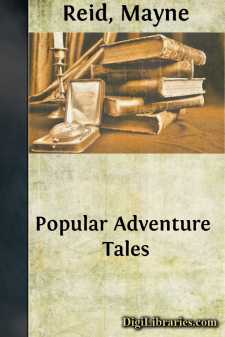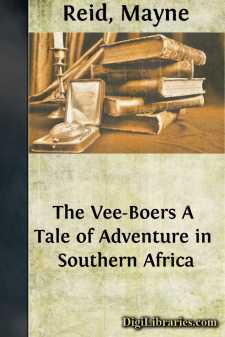Categories
- Antiques & Collectibles 13
- Architecture 36
- Art 48
- Bibles 22
- Biography & Autobiography 813
- Body, Mind & Spirit 142
- Business & Economics 28
- Children's Books 16
- Children's Fiction 13
- Computers 4
- Cooking 94
- Crafts & Hobbies 4
- Drama 346
- Education 46
- Family & Relationships 57
- Fiction 11829
- Games 19
- Gardening 17
- Health & Fitness 34
- History 1377
- House & Home 1
- Humor 147
- Juvenile Fiction 1873
- Juvenile Nonfiction 202
- Language Arts & Disciplines 88
- Law 16
- Literary Collections 686
- Literary Criticism 179
- Mathematics 13
- Medical 41
- Music 40
- Nature 179
- Non-Classifiable 1768
- Performing Arts 7
- Periodicals 1453
- Philosophy 64
- Photography 2
- Poetry 896
- Political Science 203
- Psychology 42
- Reference 154
- Religion 513
- Science 126
- Self-Help 84
- Social Science 81
- Sports & Recreation 34
- Study Aids 3
- Technology & Engineering 59
- Transportation 23
- Travel 463
- True Crime 29
The Bush Boys History and Adventures of a Cape Farmer and his Family
by: Mayne Reid
Categories:
Description:
Excerpt
The Boors.
Hendrik Von Bloom was a boor.
My young English reader, do not suppose that I mean any disrespect to Mynheer Von Bloom, by calling him a “boor.” In our good Cape colony a “boor” is a farmer. It is no reproach to be called a farmer. Von Bloom was one—a Dutch farmer of the Cape—a boor.
The boors of the Cape colony have figured very considerably in modern history. Although naturally a people inclined to peace, they have been forced into various wars, both with native Africans and Europeans; and in these wars they have acquitted themselves admirably, and given proofs that a pacific people when need be can fight just as well as those who are continually exulting in the ruffian glory of the soldier.
But the boors have been accused of cruelty in their wars—especially those carried on against the native races. In an abstract point of view the accusation might appear just. But when we come to consider the provocation, received at the hands of these savage enemies, we learn to look more leniently upon the conduct of the Cape Dutch. It is true they reduced the yellow Hottentots to a state of slavery; but at that same time, we, the English, were transporting ship-loads of black Guineamen across the Atlantic, while the Spaniards and Portuguese were binding the Red men of America in fetters as tight and hard.
Another point to be considered is the character of the natives with whom the Dutch boors had to deal. The keenest cruelty inflicted upon them by the colonists was mercy, compared with the treatment which these savages had to bear at the hands of their own despots.
This does not justify the Dutch for having reduced the Hottentots to a state of slavery; but, all circumstances considered, there is no one of the maritime nations who can gracefully accuse them of cruelty. In their dealings with the aborigines of the Cape, they have had to do with savages of a most wicked and degraded stamp; and the history of colonisation, under such circumstances, could not be otherwise then full of unpleasant episodes.
Young reader, I could easily defend the conduct of the boors of Cape colony, but I have not space here. I can only give you my opinion; and that is, that they are a brave, strong, healthy, moral, peace-loving, industrious race—lovers of truth, and friends to republican freedom—in short, a noble race of men.
Is it likely, then, when I called Hendrik Von Bloom a boor, that I meant him any disrespect? Quite the contrary.
But Mynheer Hendrik had not always been a boor. He could boast of a somewhat higher condition—that is, he could boast of a better education than the mere Cape farmer usually possesses, as well as some experience in wielding the sword. He was not a native of the colony, but of the mother country; and he had found his way to the Cape not as a poor adventurer seeking his fortune, but as an officer in a Dutch regiment then stationed there.
His soldier-service in the colony was not of long duration. A certain cherry-cheeked, flaxen-haired Gertrude—the daughter of a rich boor—had taken a liking to the young lieutenant; and he in his turn became vastly fond of her....












